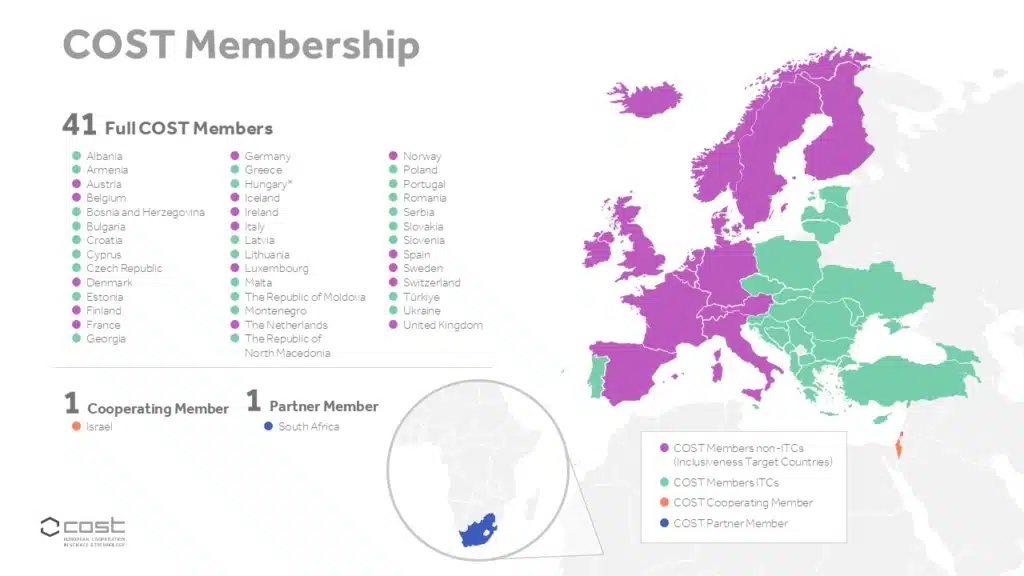COST is committed to bringing out excellence and inclusiveness in science Europe-wide and clearing away obstacles by offering low-barrier entry research networks and creating interdisciplinary research cooperation opportunities for researchers.
Features
Through bottom-up, open and excellence-driven COST Actions and activities, the policy nurtures talent and creativity. It aims to contribute to capacity building, increase connectedness via its low-barrier access process to networks of excellence.
The COST inclusiveness policy is developed around three main elements:
- Geographical spread
- Career stage: involving young researchers
- Gender balance
Inclusiveness Target Countries (ITCs)
Geographical spread includes less research-intensive COST Members. They are known as COST Inclusiveness Target Countries (ITCs):
The current list of ITCs include: Albania, Armenia, Bosnia and Herzegovina, Bulgaria, Cyprus, Czech Republic, Estonia, Croatia, Georgia, Greece, Hungary, Lithuania, Latvia, Malta, Moldova, Montenegro, Poland, Portugal, Romania, Slovenia, Slovakia, Republic of North Macedonia, Republic of Serbia, Türkiye and Ukraine (visible also on the map below in green).

COST inclusiveness objectives
- Identifying excellence in science and technology across Europe
- increasing research communities’ access to funding and infrastructures
- triggering structural changes in Members’ national research systems
The career spread focuses on empowering young talents at the beginning of their careers to acquire the necessary recognition and leadership. COST Actions will focus on:
- leadership: encouraging young researchers to set up and lead COST Actions, as well as manage COST Action grants
- increasing brain circulation between peripheral regions to research intensive territories
Gender spread considers gender balance as a key aspect of COST commitment to being open and accessible to all categories of researchers. It is systematically highlighted as an obligatory consideration for COST Actions when planning their activities. COST Action will focus on: Ensuring equal opportunities and gender-friendly career advancement. Half of the COST budget will be invested in activities fulfilling the objectives above, with a focus on engaging researchers in ITCs. The policy contributes to the ‘Spreading excellence and widening participation’ goal set of Horizon 2020. It builds on the Committee of Senior Officials’ previous efforts to boost inclusiveness in COST activities while fostering scientific excellence and improving interdisciplinary research in Europe.
Success stories
Click on the success stories below to discover the impact of inclusivity in COST Actions:


